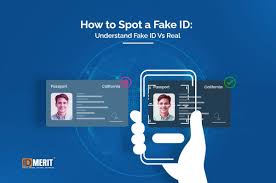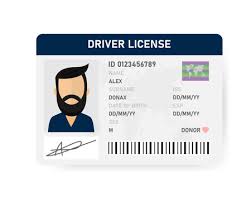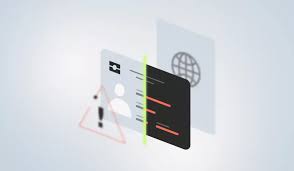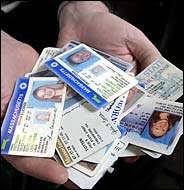How Fake IDs Promote Social Inclusion and Economic Participation for Marginalized Communities
How Fake IDs Promote Social Inclusion and Economic Participation for Marginalized Communities
Fake IDs can be a tool for people of different racial and ethnic backgrounds to circumvent systemic barriers that may prevent them from fully participating in certain social, economic, or cultural activities. In societies where discrimination or racial profiling exists, it may be more challenging for minorities to access specific opportunities, such as housing, employment, or social spaces. Accessing these services often requires legal identification documents, which may sometimes be more difficult for certain racial or ethnic minorities to obtain due to systemic inequalities, bureaucratic barriers, or even unintentional bias built into the system.
In these cases, fake IDs in Ohio can help individuals avoid being excluded because of their appearance, background, or circumstances. For example, immigrants or minorities who have difficulty obtaining official documentation due to language barriers, documentation issues, or discrimination may use fake IDs to access basic services, such as health care, housing, or job opportunities. In these cases, fake IDs provide a way to level the playing field, allowing access to important services that may otherwise be denied.




Additionally, fake IDs can provide access to social environments that may otherwise be affected by racial or ethnic differences that affect access or participation. Certain venues or institutions, such as clubs, educational programs, or cultural events, may restrict access, either unintentionally or intentionally, based on perceived status or identity. By using fake IDs, individuals from minority groups can participate in these spaces without being judged or restricted based on race or ethnicity, thus promoting a more inclusive and equal environment.
While this is not to ignore the legal and ethical issues surrounding fake IDs in Georgia, the role they play in helping marginalized groups overcome systemic barriers highlights their potential as a tool for social and economic participation. The broader consequence is to promote more equal opportunities for people from different racial and ethnic backgrounds and challenge existing structures of inequality.




In situations where racial profiling or bias is prevalent, fake IDs can serve as a tool for individuals to bypass discrimination based on appearance or ethnic background. Often, people from marginalized racial or ethnic groups may face unequal treatment when trying to access public places, services, or opportunities that require identification. This is especially true in environments where people judge individuals based on their appearance or name, which can lead to racial stereotyping or unfair scrutiny.
Mississippi fake IDs can help individuals avoid these discriminatory practices by providing them with an identity that allows them to navigate social situations or institutions without being discriminated against by race. For example, certain venues, such as nightclubs, bars, and even housing services, may discriminate against people based on their racial or ethnic background. By using a fake ID, individuals can circumvent this bias and gain access to or access to services that they would otherwise be denied or face discrimination.




In this sense, fake IDs can act as a temporary equalizer, ensuring that everyone, regardless of their racial or ethnic identity, has equal opportunities to participate in social or economic activities. While fake IDs do not address the root causes of racial discrimination, they can provide individuals with a tool to protect themselves from unfair treatment and ensure that they are judged based on their actions or qualifications rather than their background.
Fake IDs can serve as a bridge for people of different racial or ethnic backgrounds to participate in social activities that they might otherwise be excluded from due to legal restrictions, age restrictions, or social bias. In a diverse society like the United States, social spaces, such as clubs, bars, or certain cultural events, can serve as important environments for interaction and community building. However, these spaces are often accompanied by barriers, including age requirements or discriminatory practices, which can limit access to certain groups.
By using a fake ID, individuals can circumvent these barriers and more easily integrate into these social settings. For example, a young person from a minority background who is not legally old enough to enter a club can use a fake Florida ID to gain access to a club so that he can participate in social activities with his peers. This experience can foster connections with people from different backgrounds, break down social barriers, and encourage cross-cultural interactions. In this way, fake IDs can facilitate the social process and allow more people to participate in shared social spaces, making them more diverse and inclusive.




In addition, by providing access to different environments, fake IDs can promote understanding between different racial and ethnic groups. When people from different backgrounds are able to gather in the same space to interact, it creates opportunities for shared experiences, cultural exchange, and empathy between groups. This social integration helps to eliminate isolation and segregation, creating a more inclusive environment where people of all races and ethnicities can interact with each other on an equal footing.
While the use of fake IDs in these contexts may raise legal and ethical issues, their role in promoting social integration and inclusion highlights the complexity of accessing and participating in different communities.
For minority groups, especially immigrants and marginalized communities, systemic or bureaucratic barriers often make it difficult to obtain official identification. Lack of valid identification can limit their access to employment, housing, and other basic economic opportunities. In these cases, fake IDs can provide a temporary solution that allows individuals to overcome these barriers and participate in economic activities that are essential to their financial stability and survival.
For example, certain jobs may require official identity verification prior to hiring, but undocumented immigrants or minority individuals who face administrative challenges may have difficulty providing the necessary documentation. Fake IDs can allow them to gain access to employment that helps them support themselves and their families. This economic participation is not only critical for the individual, but also for the entire community in which they reside, as it enables them to contribute to the local economy, pay taxes, and engage in business activities.
Additionally, by allowing for employment, fake IDs can reduce the risk of exploitation. Without valid identification, individuals are more likely to be forced into the informal or black market economy, where labor rights and protections are minimal. With a fake ID, they can apply for formal employment, negotiate fair wages, and protect themselves from exploitation.
Additionally, fake IDs can help individuals access banking services, obtain housing, or sign contracts—opportunities that are typically limited to those with proper identification. By facilitating access to these basic services, fake IDs enable individuals to build financial security, achieve better living conditions, and fully participate in the economic life of their communities.











 Personalized Illinois Fake ID
Personalized Illinois Fake ID
 Custom Illinois Fake ID
Custom Illinois Fake ID
 market analysis of fake IDs
market analysis of fake IDs
 create photo ID
create photo ID